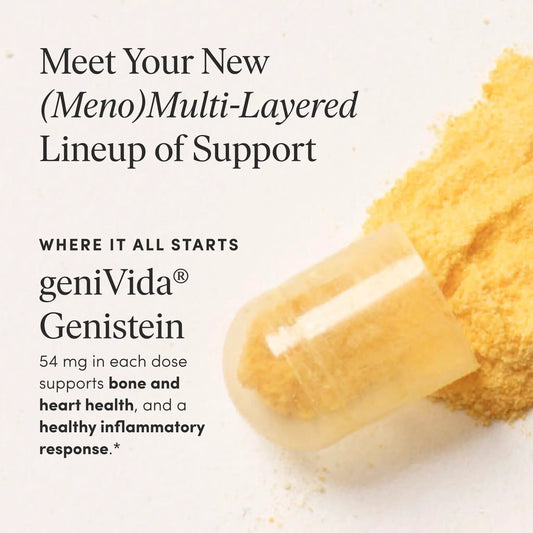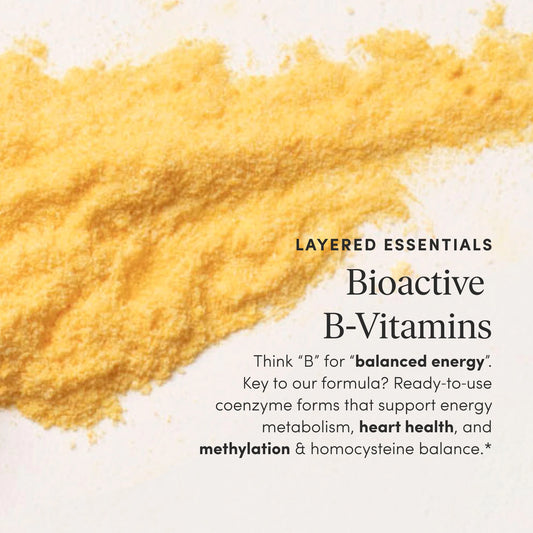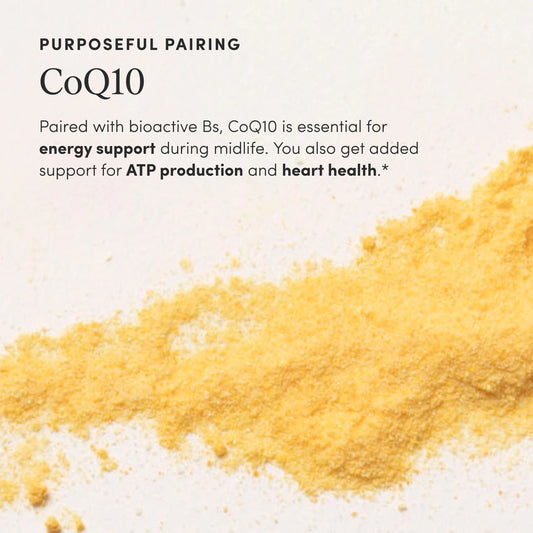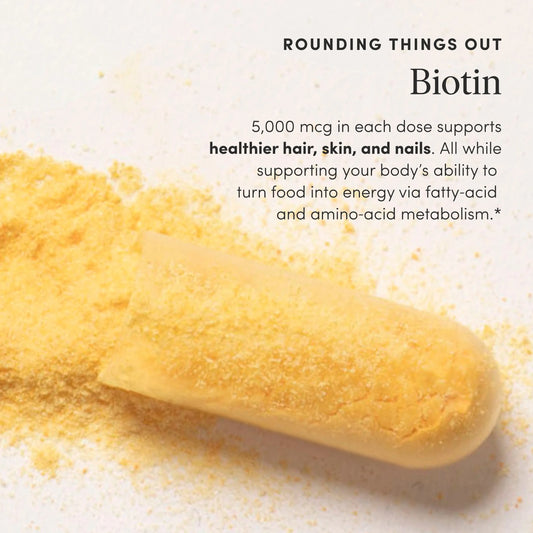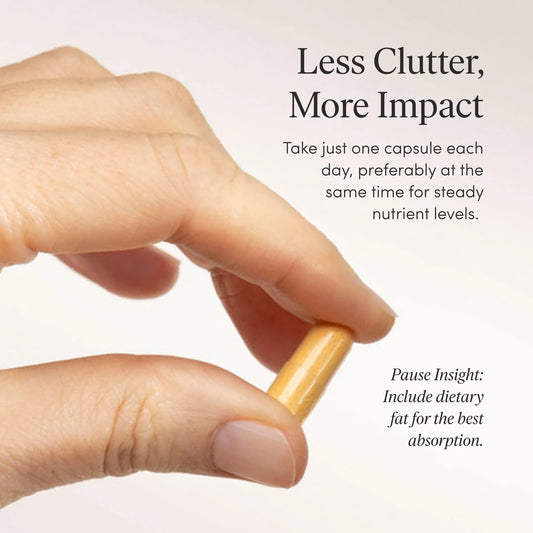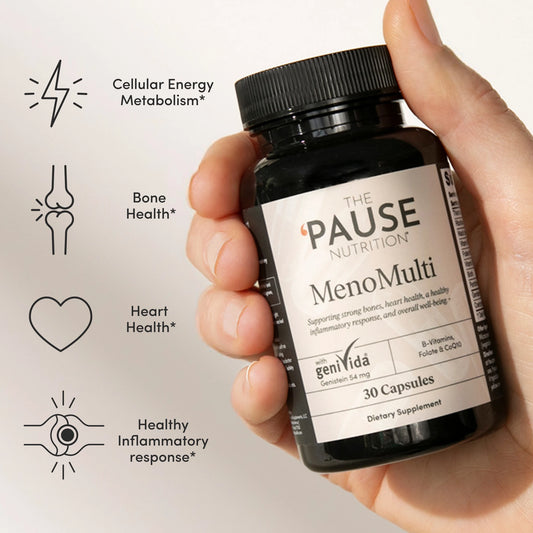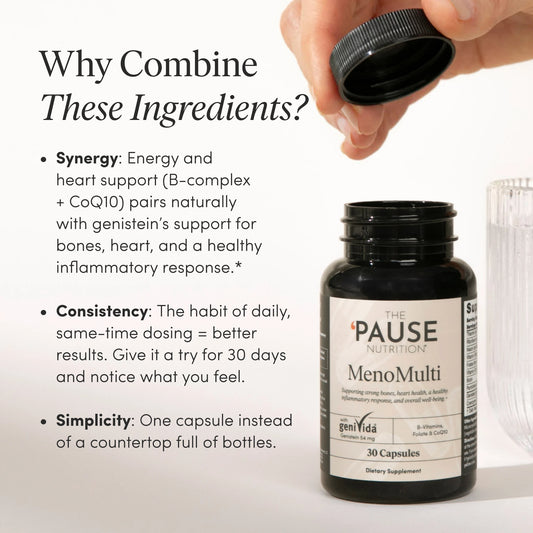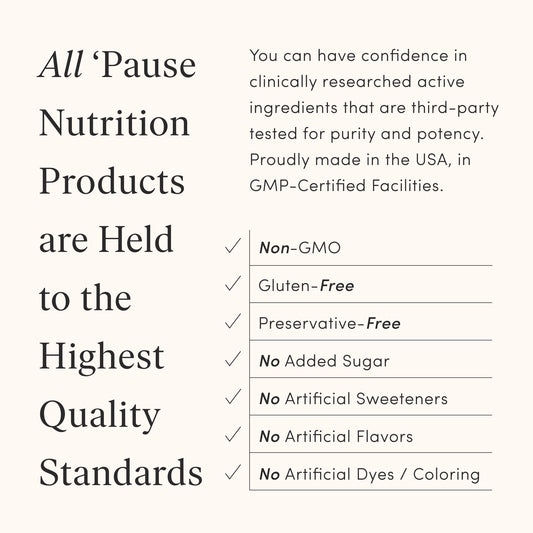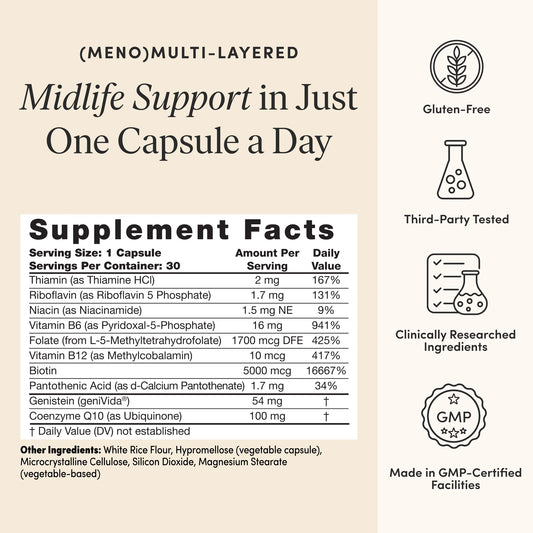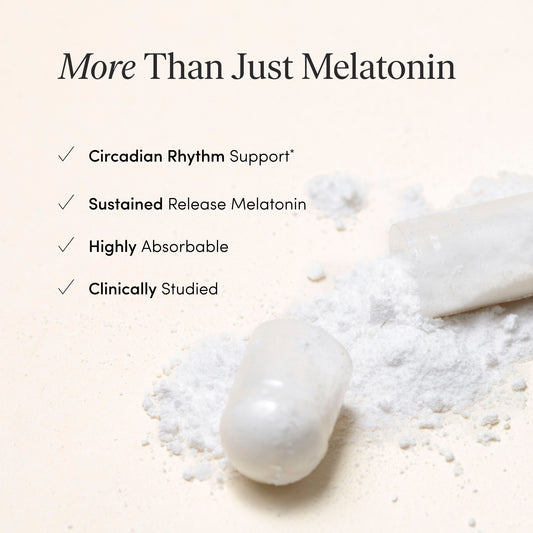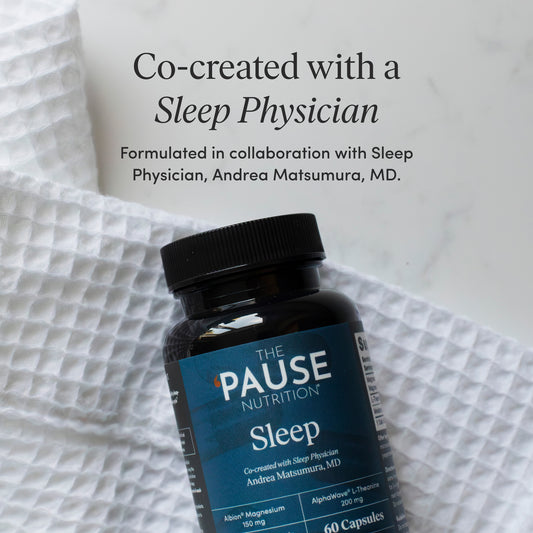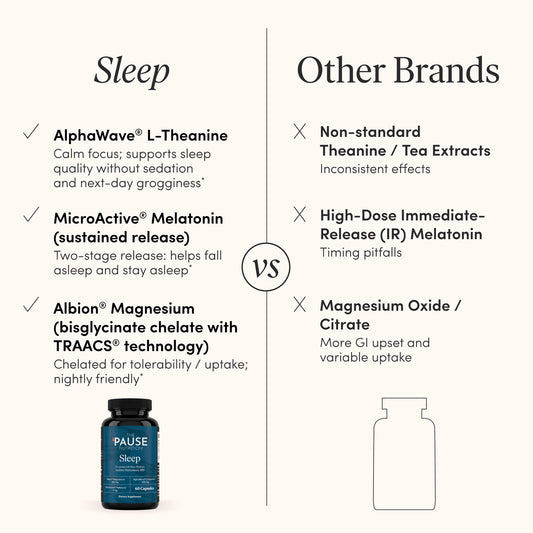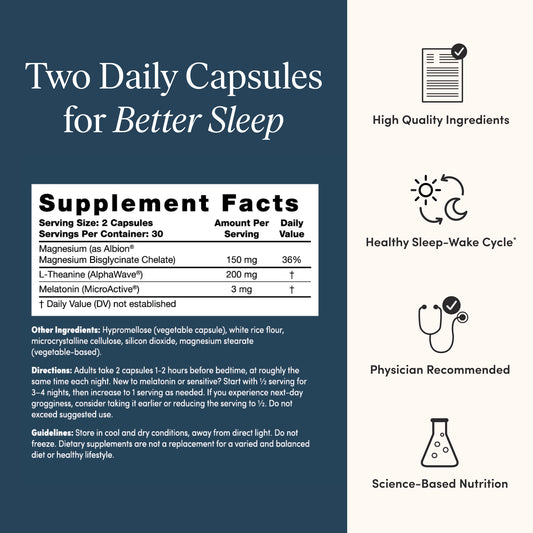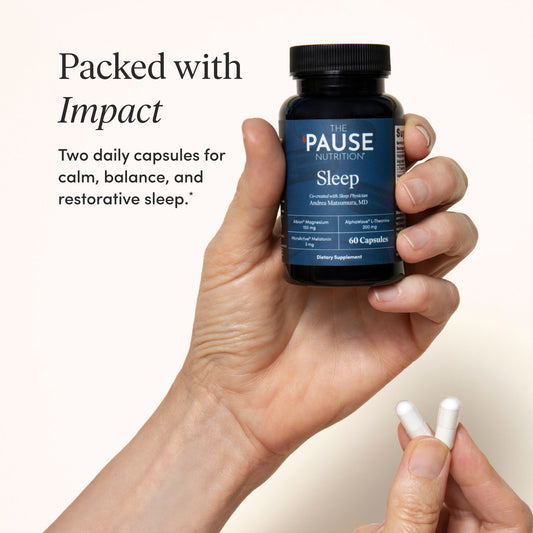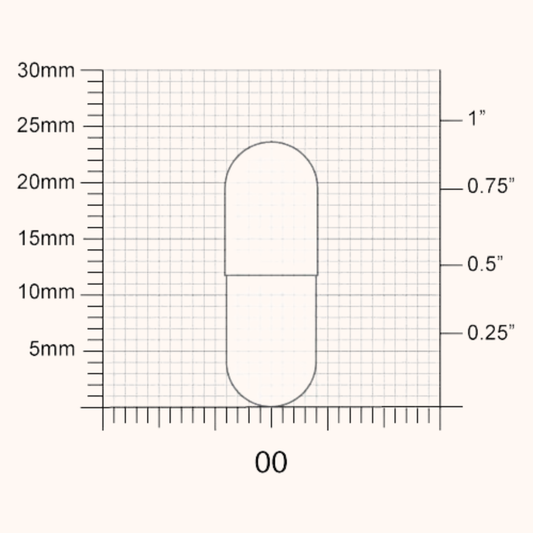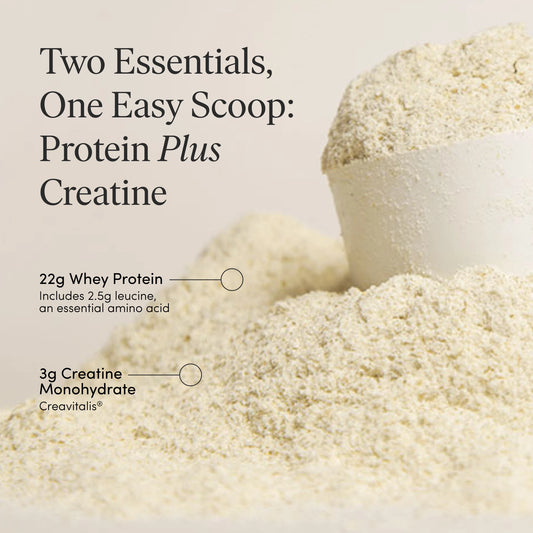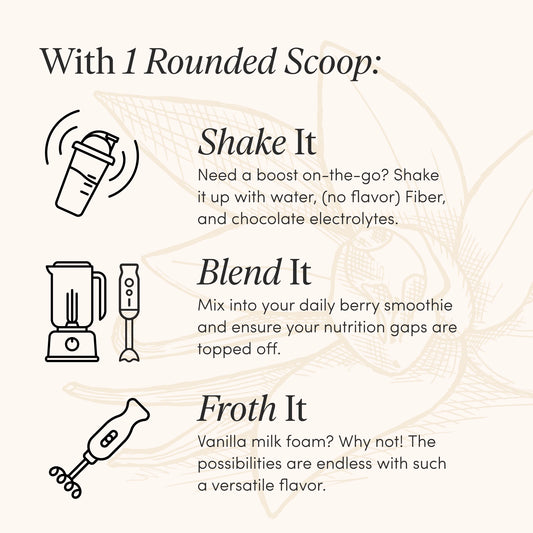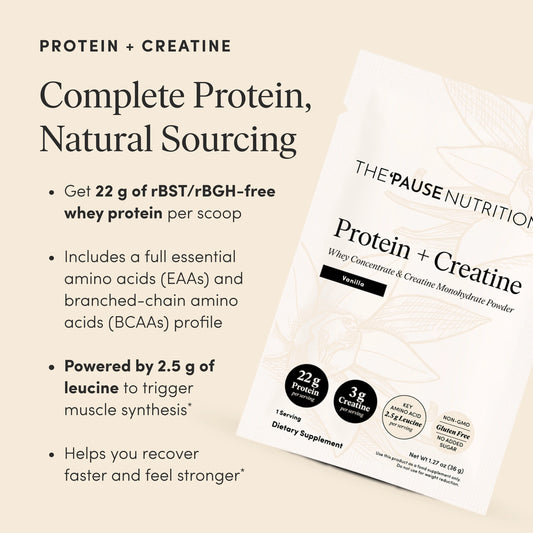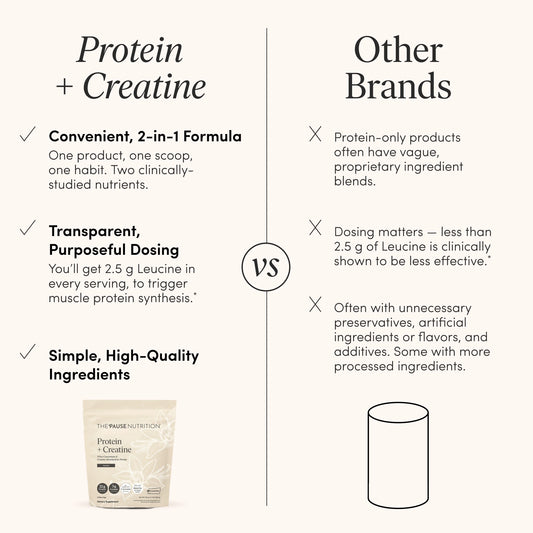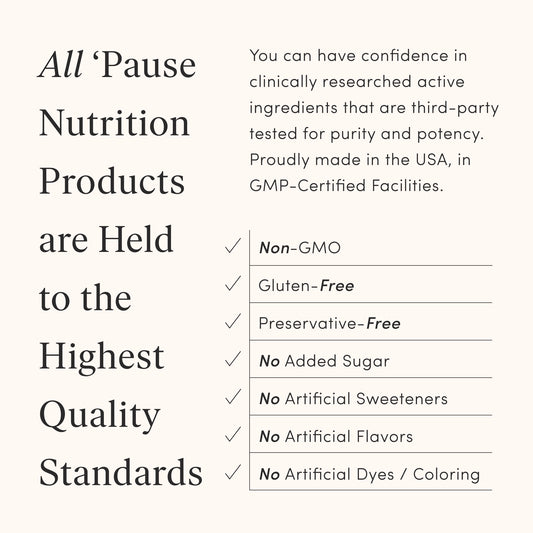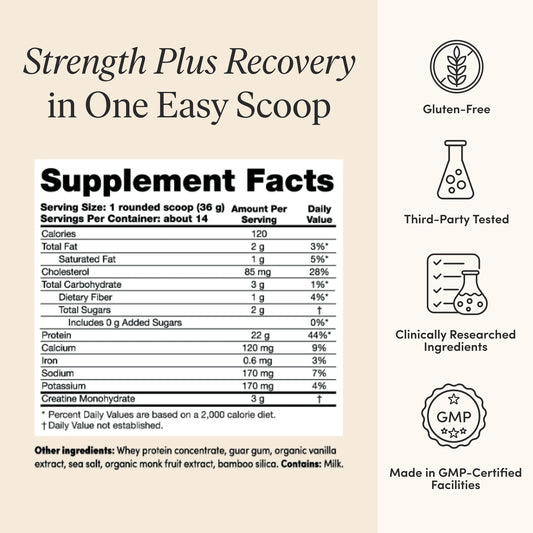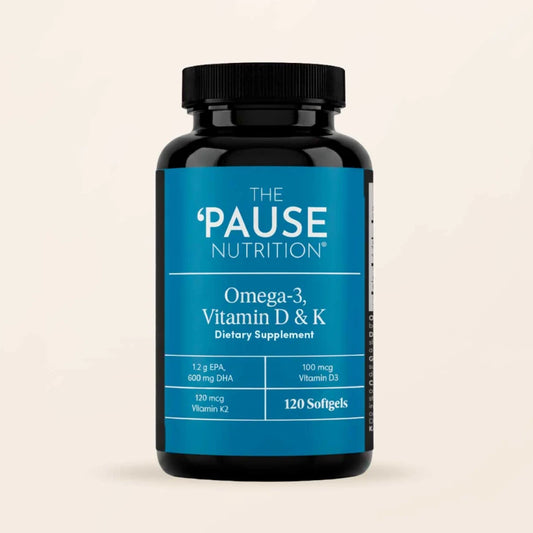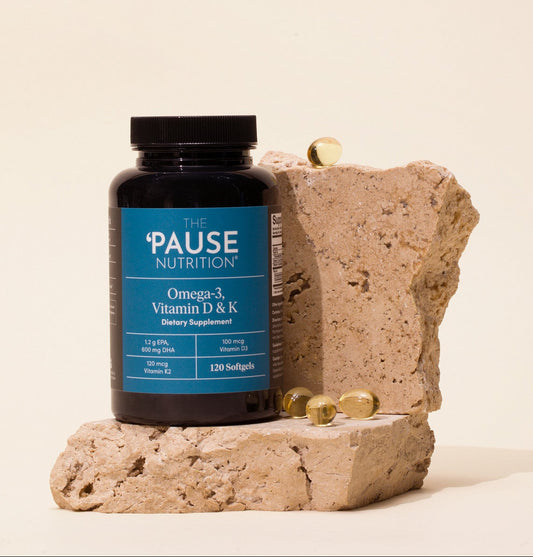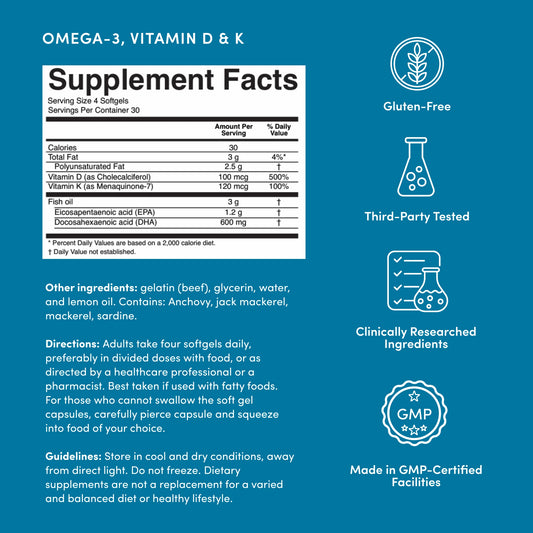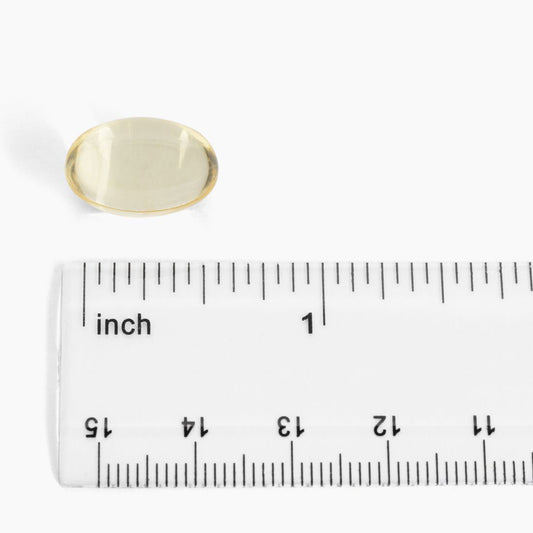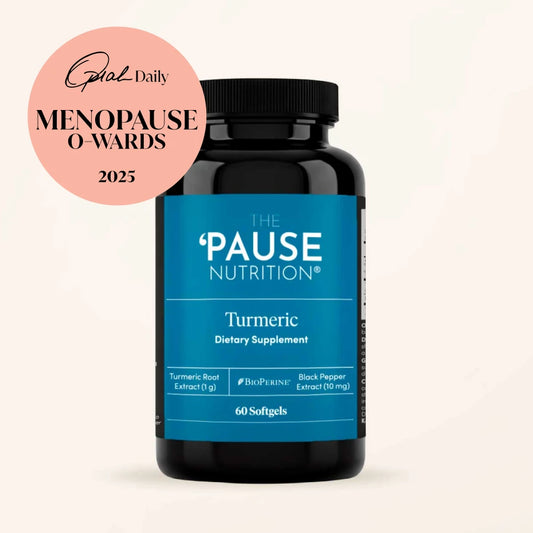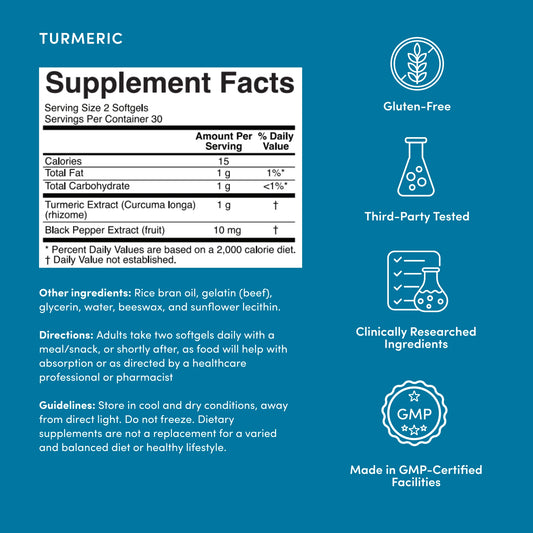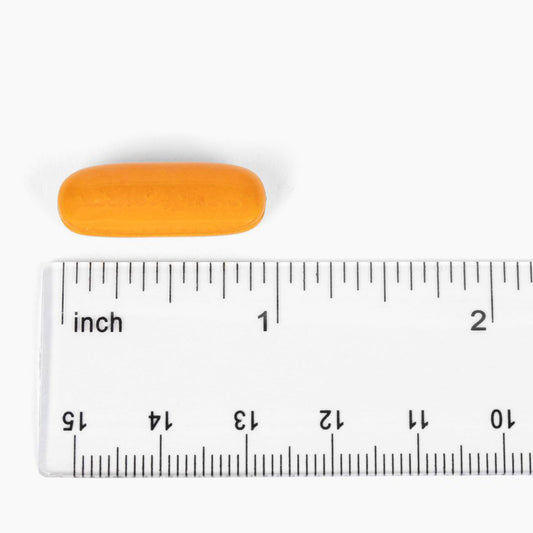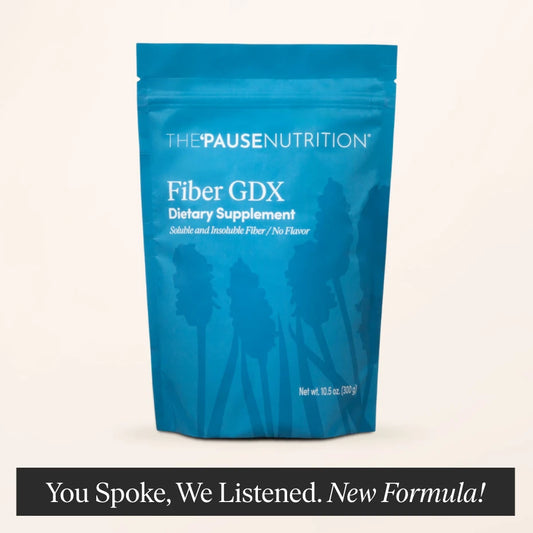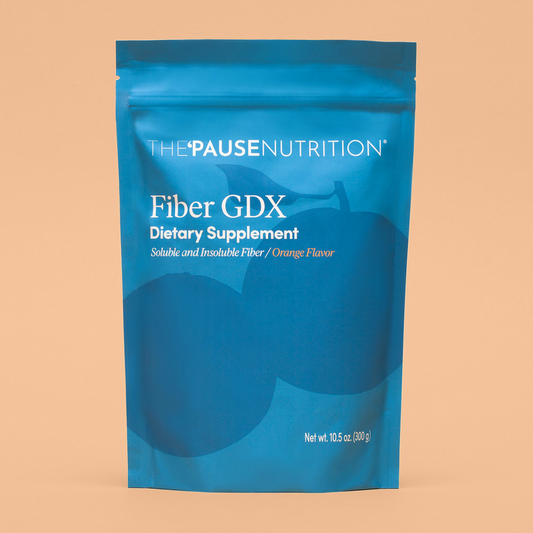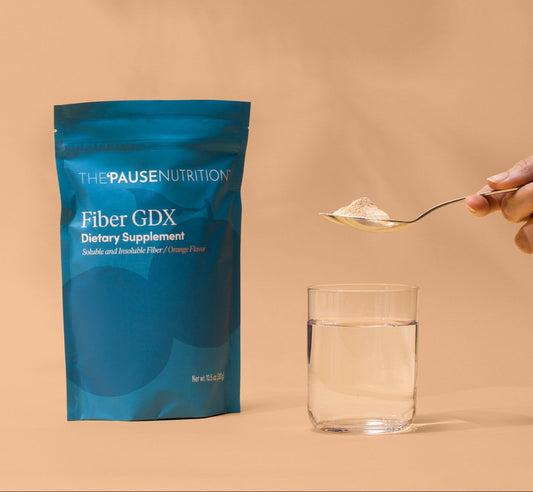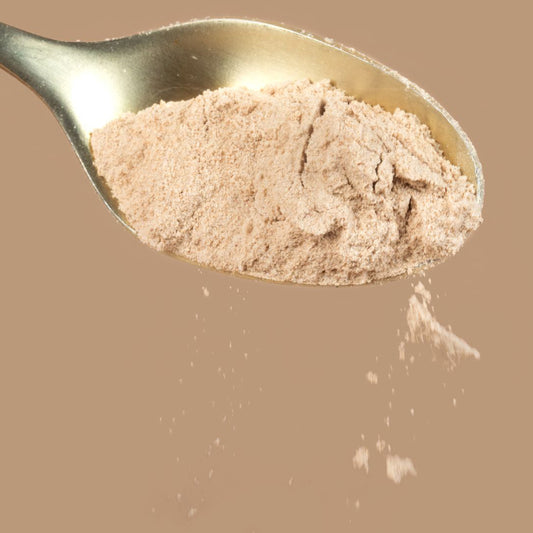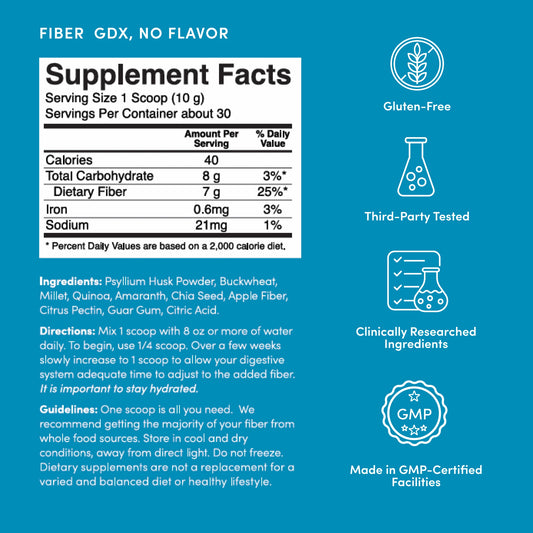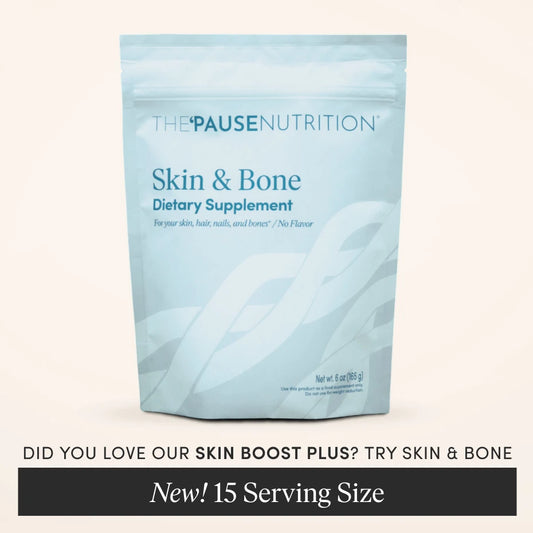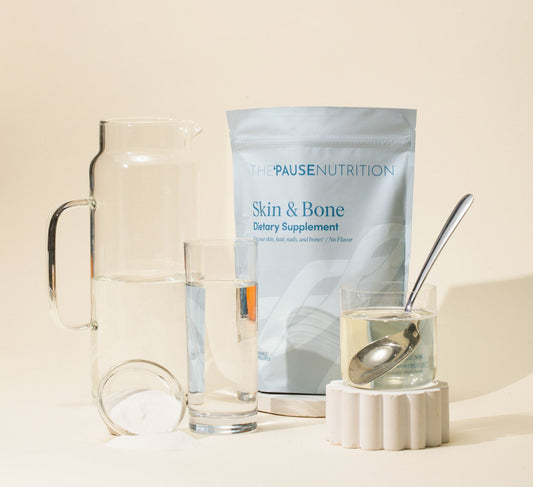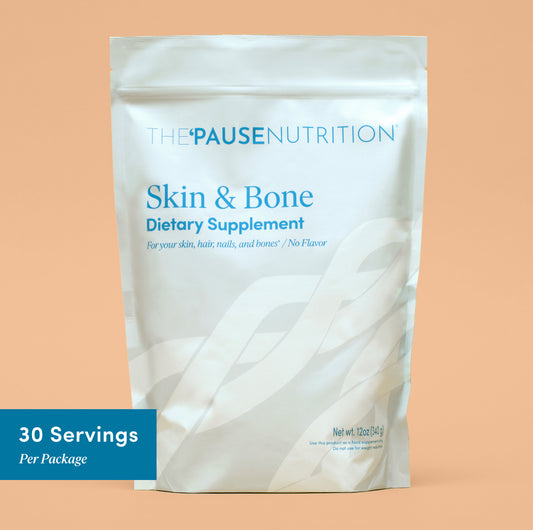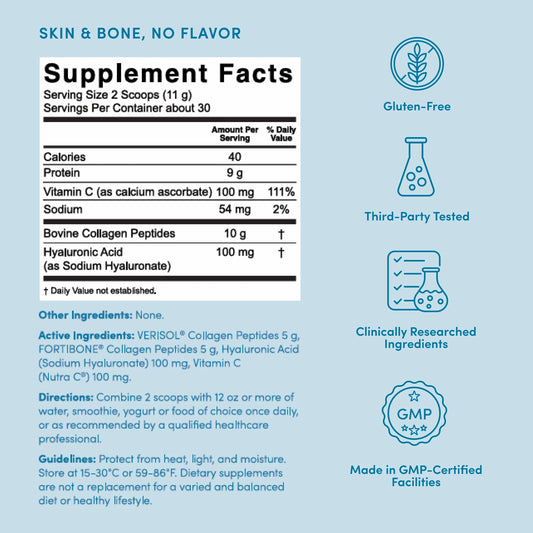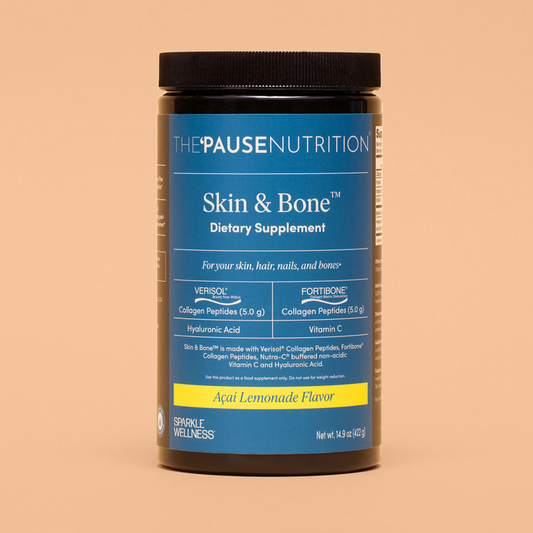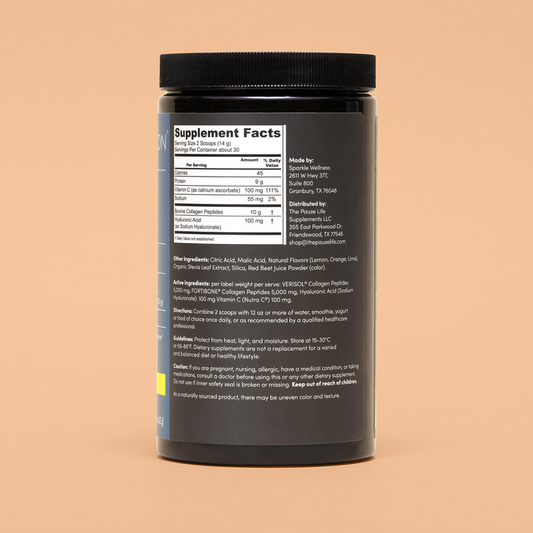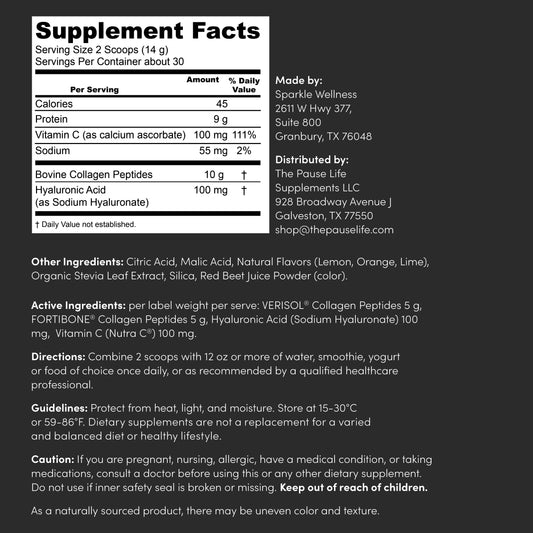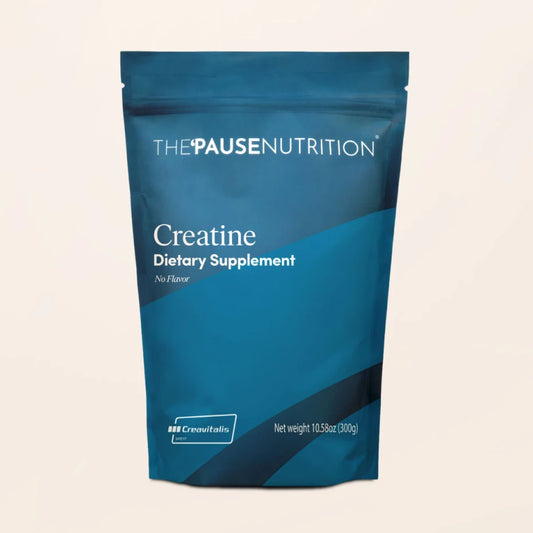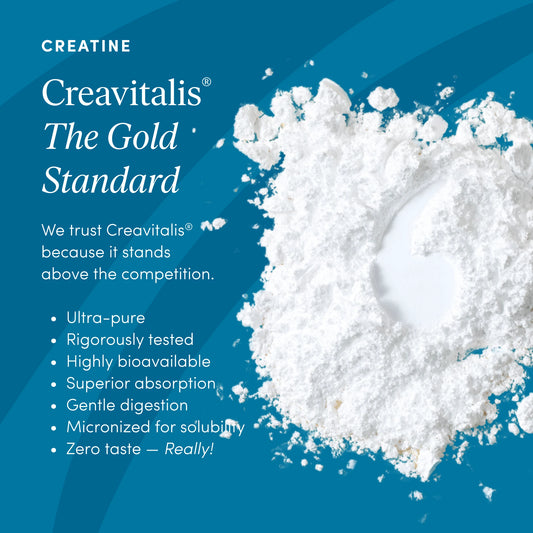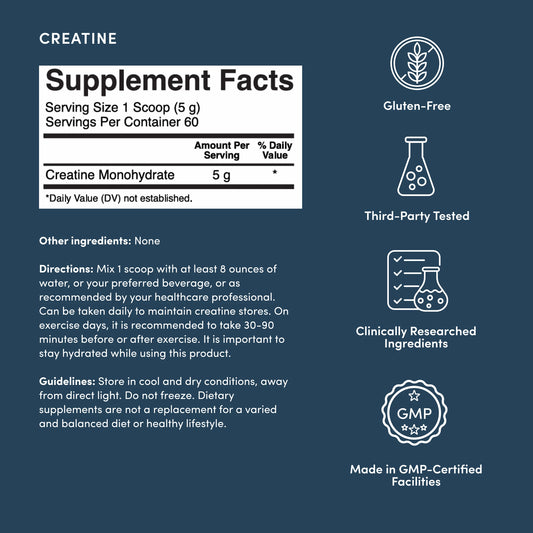The Benefits of Creatine
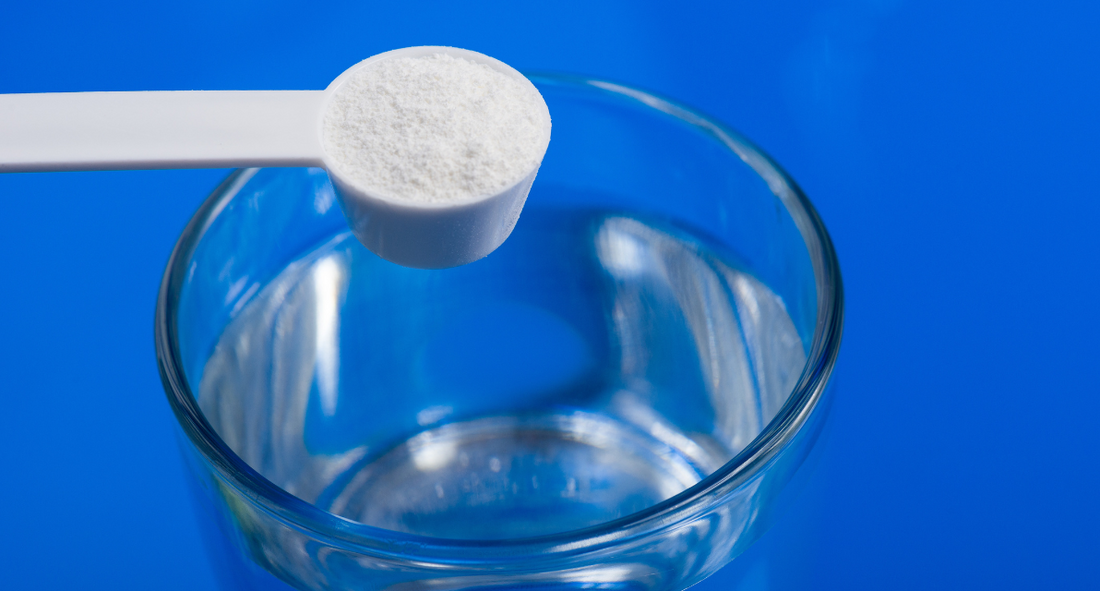
Share
As part of my personal toolkit, I’ve been focused on increasing my muscle mass by doing more resistance training and prioritizing protein in my meals. I recently began incorporating 5 grams of a creatine monohydrate supplement into my daily routine in an effort to achieve my goal. This supplement has been shown to help increase energy while performing resistance training, build muscle mass, and make bones stronger.
There is another huge benefit to adding creatine to your routine, which is something I’m really excited about! Recent studies have highlighted the cognitive advantages for tasks relying on the frontal cortex (think how well your brain works), and mood benefits of creatine, including improved short term, working and reasoning memory, reduced mental fatigue, and a more positive outlook.1*
As we age, it can be common to experience mood swings, brain fog, and even a decline in cognitive function. To combat these effects, it’s important to prioritize self-care and maintain a healthy lifestyle.
Besides a higher risk of osteoporosis and fractures, our physical decline can also impact our mental well-being. To strengthen both our bones, mood, memory and cognition, we can incorporate a consistent routine of resistance training and consider supplementing with creatine.*
What creatine does for our bodies
Creatine is naturally produced in the body as an amino acid and is present in some of the foods we eat, such as red meat and seafood. It serves as an energy reserve in the body elevating the energy in your muscles by increasing phosphoryl creatine which creates more ATP, the "energy currency" of our cells. As a result, many athletes will take creatine as a supplement right before or after their workout to help build muscle and gain more energy and for active recovery. But did you know creatine may help you feel less fatigued, making it a valuable supplement for both athletes and those looking to enhance their overall well-being?*
Creatine and menopause
Pre and postmenopausal creatine supplementation, on top of a consistent resistance training program, helps build bone mass density and strengthens bones. Studies have shown an increase in bone density, muscle mass, and performance when creatine supplementation is added to a routine of resistance training exercises and a health-centric diet.*
Increase in muscle mass*
As our bodies enter menopause, estrogen and testosterone decreases, which is a major contributor to loss in muscle, bone mass, and strength in the form of sarcopenia. When performing resistance training and taking creatine consistently, research has shown an increase in muscle mass.*
Increase in bone mass*
Another benefit when taking creatine is increased bone mass. Creatine supplementation has been shown to fight oxidative stress, while increasing bone formation. In fact, there was a study that showed after 12 months of participating in resistance training program that worked the whole body and taking creatine, people experiencing symptoms of menopause had a reduced rate of bone mineral density loss in the hip region and an increased femoral shaft width which can create greater bone bending strength, along with higher levels of upper body strength.*
You'll find some of the 'Pause Life team's favorite workout equipment including the Crossrope Weighted Jumprope and Bala wrist and ankle weights on the 'Pause Favorites page.
Increase in brain function
Creatine is a dietary supplement that may improve brain function. Some studies have shown that taking creatine may improve brain function such as short-term memory, working memory and reasoning in older women, especially under stressed conditions like not getting enough sleep. 2,3*
- Enhance cognitive processing: Help people think more clearly and quickly.*
- Improve memory: Boost short term, working and recognition memory performance, especially after sleep deprivation.*
- Combat age-related cognitive decline: Help older adults maintain their mental sharpness.*
Another study found that taking creatine supplements can help improve how the brain functions to complete tasks that require quick thinking. Researchers gave 45 young adults creatine supplements or a placebo for six weeks.4 The people who took creatine scored higher on tests that measured intelligence and short term memory and working reasoning (like remembering numbers backward).*
For a deeper dive into cognitive health, read Dr. Lisa Mosconi's book, The XX Brain.
Improved mood*
Studies have shown that women tend to have lower levels of creatine in their brains, which can affect mood and other mental functions.5, 6, 7, 8 Taking creatine supplements might help boost mood.*
Meditation can be a powerful tool to manage stress and further support mood. The Waking Up app provides guided meditations created by neuroscientist Sam Harris. The blend of meditation practice and philosophical and scientific theory may help increase self-awareness and understanding in addition to helping manage stress levels.
How to start taking creatine
If you're considering adding creatine to your routine, here's a simple guide to get you started:
- Consult your doctor. Before starting any new supplement, it's always best to consult with your healthcare provider, especially if you have any underlying health conditions.
- Choose a reputable brand. I always get asked what brand is best. My advice is to look for a creatine monohydrate supplement that is pure and free from additives. To ensure I was supplementing with the best, I decided to make my own formulation. I know what's in it and what's not. The 'Pause Nutrition Creavitalis® Creatine is sourced from Germany. It is a purer form of creatine monohydrate and is widely recognized as the gold standard in many clinical studies. It has higher bioavailability and close to perfect solubility.*
- Aim for 5 grams of creatine monohydrate every day. I take it 30 to 90 minutes before or after exercise. Most times I wind up drinking it during my workouts, but it can even be taken - and provide benefits - on the days that you're not lifting heavy or exercising. Consistency is key, so taking 5 grams per day is a solid habit to create!
- Mix it up. Creatine works best when taken with at least 8+ oz water. But you can add your creatine to any preferred beverage or smoothie mix. I like mixing creatine with The 'Pause Nutrition Skin & Bone collagen and/or Fiber GDX in 12 or more ounces of water. It’s delicious and allows me to check a bunch of boxes at once!
- Don’t pack the scoop. Creatine is a fine powder that is easily compacted. Be sure not to pack the scoop and gently tap to level.
- Consider your diet. While creatine can be obtained through certain foods like meat and fish, supplementation can ensure consistent intake.
- Stay hydrated throughout the day! Creatine plays a pivotal role in muscle recovery and growth by pulling water into your muscle cells. This increase in intracellular hydration is critical for optimizing the energizing effects of creatine, which improves strength and endurance during high-intensity activities.* A grab and go water bottle can make nailing your hydration goals easy (and stylish)!
Optional loading phase
A creatine loading phase, taking 20 - 25 grams of creatine daily for 5 - 7 days, can rapidly increase your muscle stores of creatine by 10 - 40%. After the loading phase, you can maintain your stores of creatine by taking a lower dose of 5 grams daily.
It is up to each individual to decide whether or not to complete a loading phase. Studies show that lower doses of creatine (5 grams) taken once daily can be equally effective at maximizing your stores of creatine, it just may take a bit longer.
Common myths about creatine
There are many misconceptions about creatine. It’s been around for a long time and has been extensively studied. Here are some common myths debunked:9
- Water retention. Creatine might make you feel a little bloated at first as your muscles are absorbing water, but this is usually temporary and goes away quickly. If you continue to experience bloating, be sure to add roughly 3 to 4 ounces of water for each gram of creatine consumed and make sure you are staying hydrated. Consider your water intake may vary depending on your muscle mass, as well as your activity level and your climate.
- Anabolic steroids. Creatine is not an anabolic steroid.
- Kidney damage. Creatine is generally safe for healthy individuals when taken at recommended doses. Studies have shown up to 5 g of creatine daily for 35 days had no impact on kidney function.9
- Hair loss. There's no strong evidence linking creatine to hair loss.
- Dehydration or muscle cramping. Creatine doesn't cause dehydration or muscle cramping.
- Fat gain. Creatine doesn't increase fat mass.
- Loading phase. Smaller, daily doses are effective, so a loading phase isn't necessary.
- Resistance training. Combining creatine with resistance training yields optimal results.
- Not just for men. Creatine offers various benefits for women of all ages.
- Other forms. Creatine monohydrate is generally the most effective and widely studied form. Creavitalis® Creatine is a purer form of creatine monohydrate and is widely recognized as the gold standard in many clinical studies. For more information visit our Help Center.
Remember: While creatine is generally safe, it's essential to listen to your body and discontinue use if you experience any adverse effects.
As our bodies produce less estrogen through the menopause transition, living a well-rounded lifestyle consisting of regular exercise and a pattern of eating like The Galveston Diet, can help us feel stronger, and healthier!
This article contains affiliate links.
Resources:
- https://www.ncbi.nlm.nih.gov/pmc/articles/PMC7998865/
- https://pubmed.ncbi.nlm.nih.gov/21394604/
- https://pubmed.ncbi.nlm.nih.gov/33578876/
- https://www.ncbi.nlm.nih.gov/pmc/articles/PMC1691485/
- https://pubmed.ncbi.nlm.nih.gov/26457568/
- https://pubmed.ncbi.nlm.nih.gov/26907087/
- https://pubmed.ncbi.nlm.nih.gov/22864465/
- https://pubmed.ncbi.nlm.nih.gov/12850248/
-
https://pubmed.ncbi.nlm.nih.gov/32670557/
Recommended reading:
Changes in Body Composition Associated with Menopause
The Ultimate Menopause Toolkit: An Anti-Inflammatory Approach To Managing Menopause
How Does Nutrition Affect Menopause?














